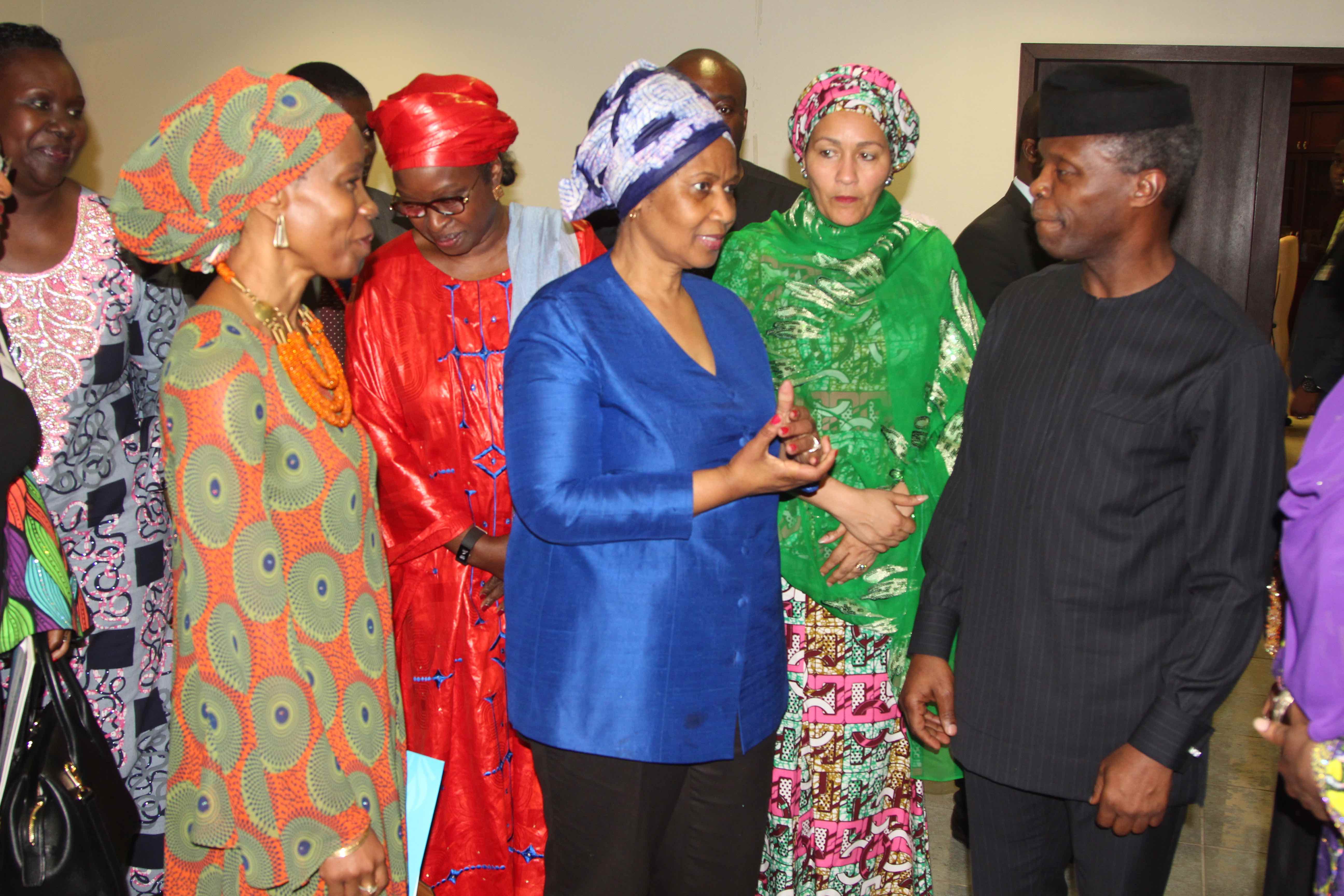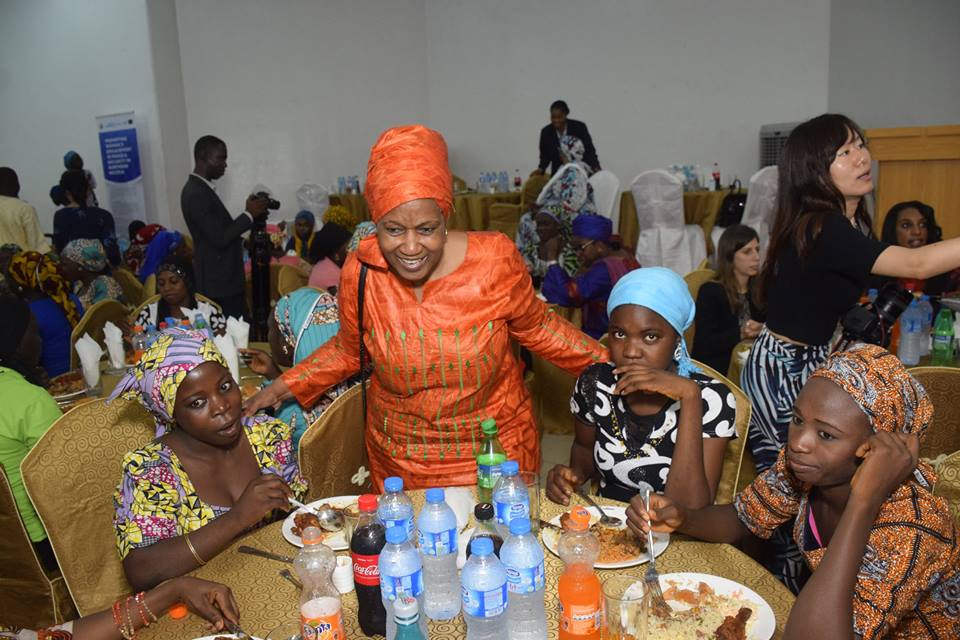Women and girls heartened to establish sustainable social and economic re-integration interventions
Date:
A joint high-level meeting with the UN and African Union delegation was led by the UN Deputy Secretary-General, Ms. Amina Mohammed, with the Under-Secretary-General and Executive Director of UN Women, Dr. Phumzile Mlambo-Ngcuka, the Under-Secretary-General and Special Representative of the Secretary-General on Sexual Violence in Conflict, Ms. Pramila Patten, and the African Union Special Envoy on Women, Peace and Security, Ms. Bineta Diop, held a meeting with women leaders and conflict-affected women and girls at the National Centre for Women Development in Abuja, Nigeria on 20th July.
The meeting reaffirmed the strong linkages that exist between women’s meaningful participation in politics and governance, and attaining the goal of sustainable, peace, security and development. The discussions highlighted the role civil society organisations and women’s groups play at the forefront of informal initiatives of conflict prevention, conflict resolution, and the promotion of reconciliation and social cohesion. Young women directly afflicted by the conflict in northeast Nigeria provided testimonies of the trauma and human rights abuses they experience daily in the displaced camps. The discussions pointed towards the need to establish sustainable social and economic re-integration interventions for women and girls escaping from Boko Haram, and underscored the importance of psycho social support and stronger reporting mechanisms to address gender-based violence.

UN Women ED, Phumzile Mlambo-Ngcuka with H.E Pr. Yemi Osinbajo, and UN Deputy Secretary General, Ms. Amina Mohammed
Prominent women leaders provided a contextual overview of women in politics, peace and security in Nigeria at the start of the meeting. Ms. Bisi Fayemi, a gender and development activist, said, “Women are not reaping the rewards for all the investments they have made in the country”. While there have been several political and legal frameworks, there has not been sufficient political will to back up the frameworks. Ms. Fayemi expressed the hope that international partners as well as the government would implement all agreed legislative and policy frameworks, provide more support for the civil society, harness the power of technology and the media, and invest more in knowledge management.
She was supported by Ms. Thelma Ekiyor, Co-Founder of the Women Peace and Security Network-Africa, who said that a lot of women in the private sector are in strategic positions and must be included in conversations on peace and security. “We have created silos in peace and security, but economic independence is a hallmark of peace and security,” she said.
Hajiya Fatima Askira, Founder of the Borno Women Development Initiative spoke about the challenges faced by women and girls in northeast Nigeria. She said, “The situation in the northeast has not given women and girls the opportunity to strive or even aspire for a better future. There should be more targeted interventions in education and health, as well as more inclusive coordination mechanisms that ensure those that are mostly affected by conflict, inform development programming.
Internally displaced persons (IDPs) in Borno State shared their testimonies on gender-based violence, thanked the UN and the Ministry of Women Affairs and Social Development for psycho-social support as well as economic empowerment initiatives, but also asked for more support.

UN Women ED, Phumzile Mlambo-Ngcuka talking to recovered Chibok Girls |Photo: UN Women
Ms. Amina Mohammed, in her remarks emphasized, “It is very important that when overcoming the conflict, we do not create another conflict in 10-15 years’ time. We intend to lead a different era and bring women together because what we want is action. This is a conversation to be continued until we get the results we need. We really need to work together.” she concluded.
Speaking to the women, Dr Phumzile Mlambo-Ngcuka, said, "Every woman who shares the experience of the young women should never feel alone. We cannot have business as usual. We must support and position women better. This is the moment to prepare for 2019 and to give it our all.”
Addressing the issues of their painful experiences, Ms Pramila Patten said, "We’ve heard very powerful messages. What comes across is that there is a real need to address gender inequality and discrimination, to shake the structural foundation of gender inequality which explains the plight of women in this country”.
Responding to the concerns raised, Ms. Bineta Diop said “We do not need any more solemn declarations. We need solemn actions and deliverables. I will report back to the AU and emphasize on how we can no longer tolerate this.”
The high-level delegation subsequently held a closed-door meeting with the recently-released Chibok girls who had been abducted by Boko Haram in 2014.